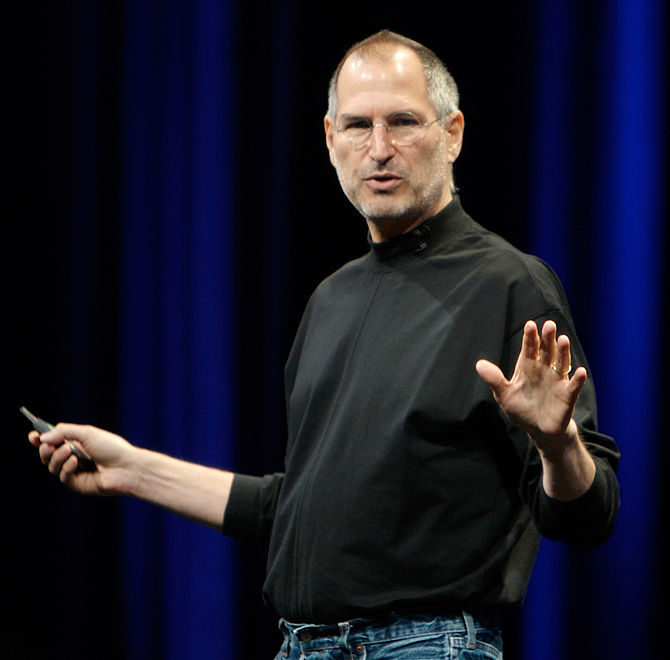Steve Jobs did it. Salesforce CEO Marc Benioff and LinkedIn CEO Jeff Weiner do it. They and other top leaders meditate, and they attribute no small part of their professional success to it.
Granted, many such figures are associated with crazy, uber-progressive California. But meditation is increasingly the rage on Wall Street too. Bridgewater Associates founder Ray Dalio has said, “Meditation more than anything in my life was the biggest ingredient of whatever success I’ve had.” He offers meditation opportunities to employees and speaks of a commitment to a workplace culture of “radical truth and radical transparency,” as he told the Wall Street Journal this summer.
Yes, there seems to be a bottom-line benefit to this “shutting up and sitting still” business.
Do you have the patience to wait till your mud settles and the water is clear? Can you remain unmoving till the right action arises by itself? –Tao Te Ching by Lao Tzu (Steven Mitchell translation)
I’ve long felt that there’s a bright future for silence, especially in these shrieky, screechy times. We’re constantly semi-connected and cyber-connected, but we’re never fully present—either to ourselves or to other people. Prolonged silence helps to reverse this.
Chade-Meng Tan, Google’s official Jolly Good Fellow, told me last week that he believes meditation, done right, doesn’t simply boost performance in some amoral fashion. It creates the healthy relationships that make for a better world.
The brand of “mindful meditation” that Meng teaches to ambitious Googlers [see here for a fuller description of mindfulness] isn’t just about silence or stillness. It’s about cultivating a certain attitude that changes how we see so-called intractable problems and so-called problem people.
The benefits should be considered by any smart manager:
1. Mindfulness can turn office politics from a jungle to a garden.
The big mistake, in the eyes of the mindful person, is “to concentrate attention without kindness and compassion,” Meng said. Whoops. I tend do that all day long, and I get up early to do it on weekends. I concentrate well and hard on people who are incompetent. And kindness never occurs—especially after I’ve worn myself out by mentally tabulating their idiocies.
It sounds far-fetched to imagine yourself opening a meeting with that nasty, self-promoting colleague by both taking a moment to think kind thoughts about one another. Meng might suggest just that sort of tactic, though. And he’s seen it work, for the practical benefit of all parties.
He’s also seen how the way we mentally frame our work community improves how we perform. And it’s not about being passively nice. He favors healthy and aggressive competition, within a workplace or with other companies; and he favors competition in doing good things for customers or the community.
2. Mindfulness can build an environment for Aha! moments. When you create disciplines for organized thought and for free-flowing and disorganized thought, you’ve made the intellectual soil fertile for epiphanies and Eurekas.
Aha moments, say Meng and others, involve the mind moving effectively through various thought patterns—between alpha and gamma waves and through a variety of processes that neuroscience is just beginning to figure out.
It takes some discipline, however. Constantly looking at your smartphone isn’t going to allow many Aha! moments. When you’re not working hard or meditating, you need to give your thoughts some time to percolate before great flashes of insight come.
There’s a paradox of creativity. Just as you can’t catch a tennis ball if you tense up your hand too much, you can’t have a great idea if you’re spraining your grey matter while trying to force it. A practice of meditation helps considerably here.
3. Mindfulness can keep you sane and healthy.
“Stockbrokers are three times more likely to suffer from depression than the general adult population,” Yahoo News reported this year. “Excess stress is a leading cause of heart and brain disease.” That’s one reason meditation is catching on along Wall Street.
And as fellow Forbes contributor David DiSalvo noted a few days ago, studies suggest that mindfulness is “directly associated with scores on four of seven cardiovascular health indicators, and better health overall.”
I’ve written elsewhere that we can anticipate some tensions as the more eager proponents of mindful meditation run into people who dismiss it as too “touchy feely” or exotic.
But there’s no doubt that the people who’ve seen results will be spreading the word—and the practice—in coming months and years.
From: Forbes

